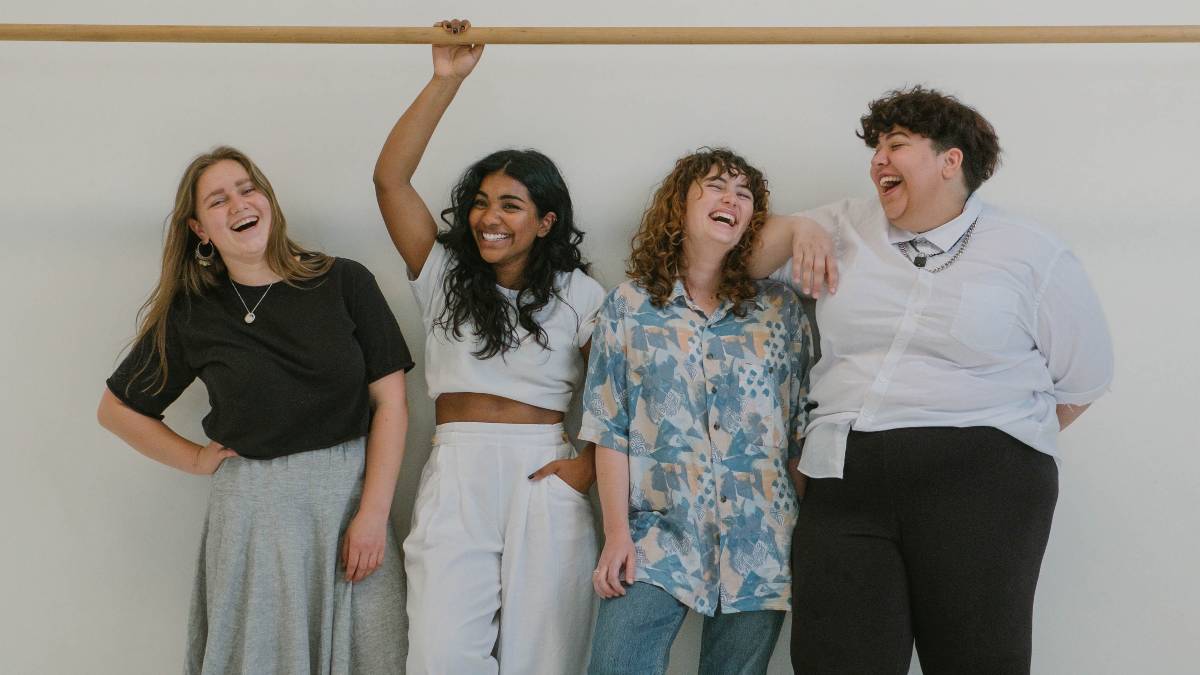
Do You Want To Be Well-Liked Or Popular? New Research Offers A Path For Both
Psychologists Michael Dufner and Sascha Krause explain how we can inspire admiration as well as kindle deep connections.

By Mark Travers, Ph.D. | May 11, 2023
A new study published in Psychological Science explores some of the key characteristics of being well-liked and being popular. It turns out that they might mean two very different things, depending on the social situation.
I recently spoke to psychologists Michael Dufner and Sascha Krause of the University of Leipzig in Germany to understand how one can use this information to put their best foot forward during first encounters. Here is a summary of our conversation.
What motivated you to explore the question of how to be liked in first encounters?
People form judgments about each other very quickly in the getting acquainted process and the extent to which one is liked by another newly met person is highly consequential for the development of the relationship. Not much is known, however, about what exactly the behaviors are that lead to being liked in the first place. Our research aimed to fill this gap.
Can you briefly explain the difference between agentic and communal behaviors with an example? What role did these concepts play in your study?
- Agentic behaviors are typically shown when one aims to gain respect and admiration from others. Examples would be self-assured or dominant behavior.
- Communal behaviors, in contrast, are typically shown when the goal is to connect with others and form mutually supportive and trusting alliances. Examples would be friendly, helpful, or warm behavior.
Agency and communion represent the most fundamental dimensions of interpersonal behavior. Each behavior can be categorized with regard to how close it aligns to each of these two dimensions.
What was the methodology of your study? What would you say was your most critical finding?
Young, unacquainted persons had brief, dyadic getting-acquainted conversations. Participants belonged to different laboratory groups and everyone from a group interacted with everyone else.
After each interaction, participants indicated how much they liked their interaction partner. This design allowed us to differentiate between two different forms of liking:
- Popularity (how much one is generally liked by others)
- Unique liking (how much one is particularly liked by a specific other)
The interactions were videotaped so that outside observers (undergraduate psychology students) could rate the agentic and communal behaviors participants showed during the interactions. This way, we could examine the effects of agentic and communal behavior on the two forms of liking.
That is, with regard to popularity, we could test to what extent generally showing agentic/communal behaviors is linked to being generally liked by others. With regard to unique liking, we could test to what extent showing more agentic/communal behavior than usual for oneself is linked to being particularly liked by a specific other.
The central finding was that generally showing much agentic and communal behavior leads to high popularity, but that when it comes to unique liking, showing particularly high (i.e., higher than one's personal average) levels of communal, but not agentic, behavior leads to being particularly well-liked by the interaction partner (i.e., the other likes one more than he/she likes others and that he/she likes one more than other persons on average do).
Your study differentiates between popularity and unique liking. Would you say that either one of them is inherently better than the other?
Both of them are very important. Being generally liked by others (i.e., popularity) is important, as it indicates that one is socially included and respected in one's group.
Being uniquely liked by a particular other person (i.e., unique liking) is important, because it is often reciprocated by both interaction partners and represents the building block of mutually supportive relationships, such as friendships or romantic relationships.
What implications do your findings have for individuals who want to make a good impression in first encounters?
For communal behavior, the recommendation is straightforward: Be as communal as you can.
For agentic behavior, the effect on popularity seems positive and null, or even negative, with regard to unique liking. So whether or not one should show much agentic behavior depends on the context: if you want to be popular within a group, generally showing agentic behavior seems beneficial.
If you want to win a new friend, showing very high levels of agentic behavior during interactions with this particular other, in contrast, might be counter-productive.
Would you have any advice for someone who might be a little too occupied with what others think of them during first encounters?
One implication from our research is that communal behaviors, such as friendliness, helpfulness, or warmth have positive effects on being liked throughout, whereas trying to impress others through agentic behaviors might backfire. So my advice is simple and straightforward: be nice and the effect will most likely be positive.
